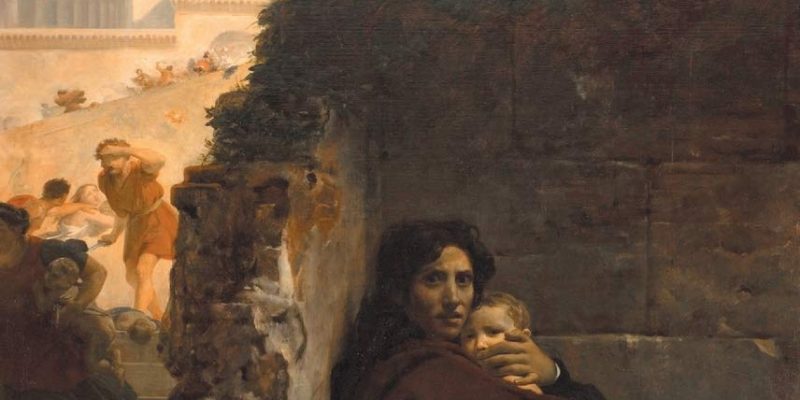Dr. Lissa Wray Beal, Professor of Old Testament, Providence Seminary, opened this final session with her paper on “Servants of Grace and Horror in Jeremiah 25:1-14.” She read the passage in Jeremiah from a perspective of horror as an aspect of biblical violence. The particular focus of the paper was on viewing Nebuchadnezzar as God’s servant. She makes a case for this announcement being received as a horrifying idea. How can this heathen and outsider king, who is the enemy of the Israelites, be Yahweh’s servant? She addresses this by reminding the reader that Israel first was confronted by the prophet, a familiar servant of God, under grace. But, when they rejected the message of God given by the prophet, they were then confronted by the servant of horror. Dr. Beal concludes that this story is contextualized in an enduring text that reminds the reader of God’s grace and favor ahead of horror.
Three other papers followed Dr. Beal’s Keynote. These followed her presentation in looking closely at prophetic literature and portrayals of violence in language and response. First, Lucas Martins, Assistant Professor of Hebrew and Hebrew Bible, Adventist University of São Paulo, presented “The Violent Rhetoric of Prophetic Satire.” Then, Jerry Shepherd, Associate Professor of Old Testament, Taylor Seminary, gave his paper, “The Message of the Prophets: Peace through Violence?” The final paper was presented by Scott Ryan, Assistant Professor of Religion and Biblical Studies, Claflin University, entitled, “The Violence of the God of Peace and the Peace of a Violent Humanity: Reading Divine and Human Violence in Paul’s Letter to the Romans.”
Conclusions about biblical violence
This second session features papers covering traditional hermeneutic approaches to reading, assessing, and interpreting biblical violence in Scripture. The first session to feature papers on this approach was CSBV Session 3, which focused on narrative texts from the Torah. This session concluded with several references to passages in the prophets that are often just as difficult to translate as they are to read. Over the entire week, scholars gathered through virtual technology to read, listen, present, and converse about biblical texts that have been used to justify violence or are, themselves, violent in nature. This work serves to encourage better hermeneutics of the Bible. In addition, it encourages us to remember that there are real people with genuinely difficult or painful experiences on every side of the biblical text.
About this event
The Centre for the Study of Bible and Violence (CSBV) is based in Bristol, UK. This is the second year of online conferences. Read about #CSBV presentations. Also, read about other academic conferences.

Dr. Erica Mongé-Greer, holding a PhD in Divinity from the University of Aberdeen, is a distinguished researcher and educator specializing in Biblical Ethics, Mythopoeia, and Resistance Theory. Her work focuses on justice in ancient religious texts, notably reinterpreting Psalm 82’s ethics in the Hebrew Bible, with her findings currently under peer review.
In addition to her academic research, Dr. Mongé-Greer is an experienced University instructor, having taught various biblical studies courses. Her teaching philosophy integrates theoretical discussions with practical insights, promoting an inclusive and dynamic learning environment.
Her ongoing projects include a book on religious themes in the series Battlestar Galactica and further research in biblical ethics, showcasing her dedication to interdisciplinary studies that blend religion with contemporary issues.




